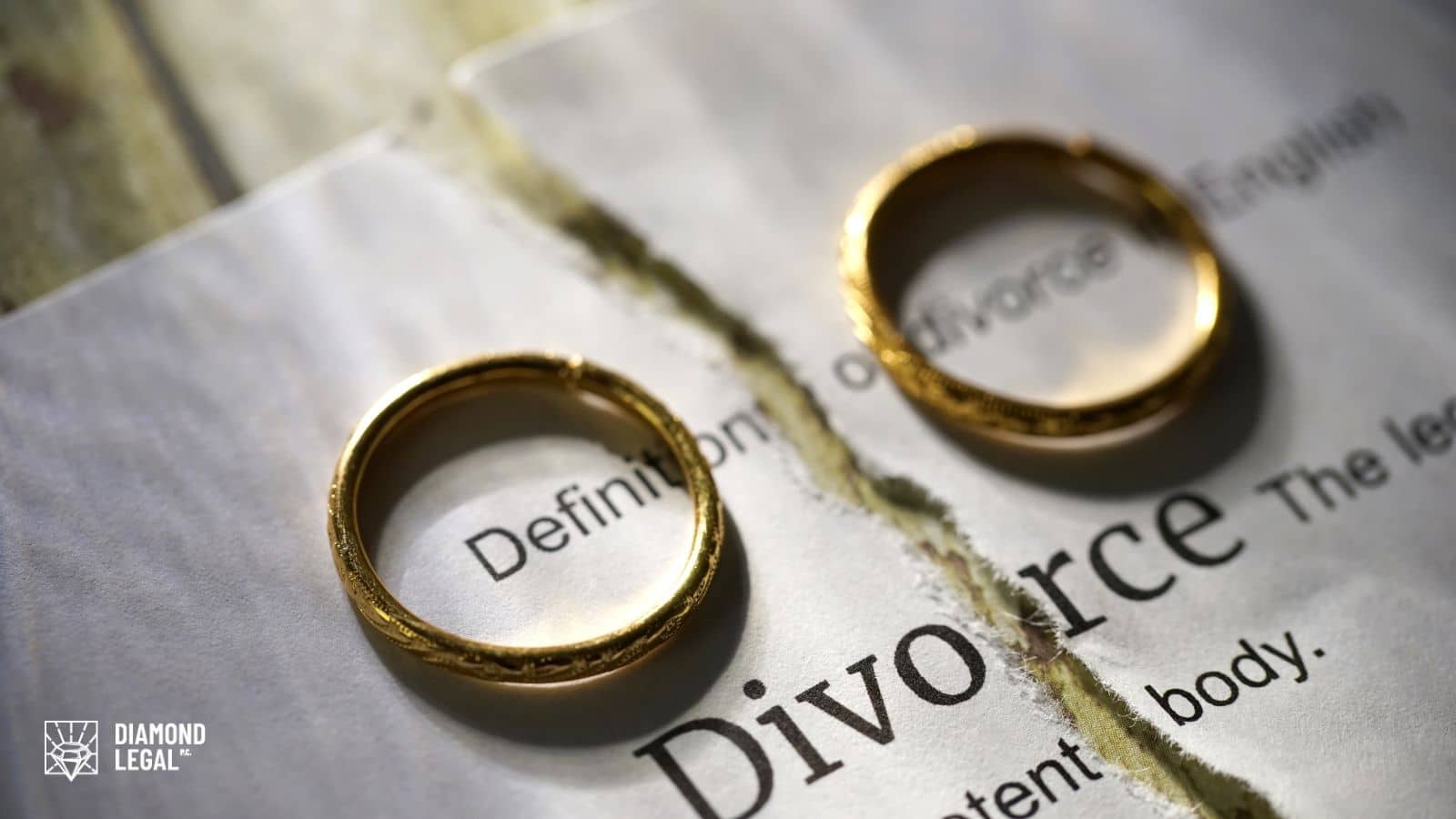What Are the Grounds for Divorce in Illinois?
Couples in Illinois have been getting divorced for over 100 years, with the first divorce laws in the state passed in 1819. Previously, Illinois law listed 10 legally acceptable reasons, otherwise known as “grounds”, that a spouse could claim when filing for divorce. This was known as “fault-based” divorce.
However, in 2016, Illinois did away with these requirements, replacing them with the only recognized grounds being “irreconcilable differences”, making Illinois a “no-fault divorce” state. This revamping of the law resulted in a simpler, more streamlined process for couples looking to split due to irreconcilable differences, a/k/a “the irretrievable breakdown of a marriage”.
But what does this change really mean in practice?
Pre-2016 Grounds for a Fault-Based Divorce
Before the 2016 update to the Illinois Marriage and Dissolution of Marriage Act, a spouse filing for divorce had to cite 1 of the 10 following reasons for divorce:
- Impotency
- Bigamy (the at-fault spouse already had a living wife or husband at the time that they entered into the subsequent marriage)
- Adultery
- Abandonment (for no less than one year)
- Alcohol abuse or drug addiction for at least 2 years
- Attempted murder of the other spouse
- Serious, repeated physical and/or mental cruelty
- Conviction of a felony
- Infection with a sexually transmitted disease
- Irreconcilable differences
However, the courts began to recognize that grounds for divorce ultimately did not change the final outcome of the divorce proceedings. Additionally, regardless of the grounds for divorce, the division of property and assets remained the same and was not determined by fault of one party or the other.
This realization led to a major overhaul of divorce law in Illinois in 2016 as Illinois decided to do away with the concept of the fault-based divorce.
Is There a Mandatory Separation Period Required Before Filing for Divorce in Illinois?
In Illinois, divorce laws require a certain period of separation before a couple can file for a divorce. Under the Illinois Marriage and Dissolution of Marriage Act, couples seeking a no-fault divorce based on irreconcilable differences must typically live separate and apart for a mandatory period of six months. This required separation period serves as proof of the irretrievable breakdown of the marriage. Generally speaking, if both spouses agree, this waiting period helps expedite the divorce proceedings, especially in an uncontested divorce where the other spouse does not dispute the grounds for divorce.
Illinois divorce laws no longer recognize fault-based grounds, such as mental cruelty or habitual drunkenness, as reasons for divorce. Instead, the state is a no-fault divorce state, which simplifies the divorce process by eliminating the need to prove marital misconduct. However, the court may still consider factors like marital property division, spousal support, and child custody when determining a fair divorce settlement. The Illinois courts use the principle of equitable distribution for dividing both marital and non-marital property, considering factors like future earning capacity and each party’s contribution to domestic duties.
The Illinois State Bar Association highlights that the separation period applies unless both parties agree to waive it, particularly in cases where an out of court settlement has been reached. In such instances, the divorce petition can proceed without a lengthy court order or numerous court appearances. This process can minimize attorney’s fees and reduce the overall financial burden on both spouses.Whether for opposite sex couples or same sex couples, Illinois law ensures that child support, spousal support, and property division are determined based on the best interests of both parties and any children involved.
So how does no-fault divorce work?
Under no-fault divorce, neither spouse is technically responsible for the end of the marriage. Therefore, neither party needs to prove grounds for the divorce or defend themselves in court against allegations of misconduct from the other spouse.
Since 2016, the courts have set forth a much simpler path to severing the bonds of matrimony.
The new criteria include:
- The couple has lived separately for at least six months. The reason for this requirement is to give each party a chance to cool down or become more level-headed about the situation. In certain circumstances, this 6-month waiting period may be waived if both parties agree. Living separately does not necessarily mean you must live in different households. You just need to show that you’ve been living independently of one another, basically as roommates as opposed to as a couple.
- There are irreconcilable differences that make the marriage unsavable. This basically means that you can’t get along, the marriage cannot be saved and you don’t want to be married anymore because of these differences.
- Continued attempts to reconcile such differences would have no impact and could put further stress on your family.
- One or both of the parties has lived in the state for at least 90 days.
What do I need to know about initiating a divorce in Illinois?
Filing for divorce in Illinois requires completion of required paperwork and following the steps as required by local court rules. Each county has different requirements, forms, deadlines and procedures, so it’s important to know what these are before you begin the dissolution of marriage process.
In a divorce case, there are many issues to be considered. 4 major issues that are looked at in every divorce are:
- The division of assets, including real estate, as well as the debts;
- Is either party entitled to maintenance (formerly “alimony”) or spousal support;
- Who gets the kids (parenting time/child custody) and when, if there are minor children;
- Will one spouse be paying the other for child support and, if so, how much?
So, although initiating a divorce and filing the proper documents with the court may seem straightforward and can move along fairly quickly, there are crucial considerations to keep in mind.
The decision to get divorced is not one made lightly. You have rights and interests that need to be protected. Hiring an experienced family law attorney in McHenry, Illinois to help you navigate the legal process, assist in negotiations and advocate for you during this difficult time could help you avoid costly mistakes and save you time and money.
Contact Diamond Legal today.
An Illinois divorce attorney can work with you to set realistic expectations during a time when emotions run high. They will objectively review your situation and needs and suggest options and strategies you might not have considered in an attempt to get you the best deal and divorced as quickly as possible.
At Diamond Legal, we know that the subject of divorce is delicate and must be handled professionally and with great care. We offer family law consultations and services for divorce, child custody, modification of support, prenuptial arrangements and much more. See why we’re an excellent and compassionate choice for your divorce representation. Contact us to get started.
DISCLAIMER: Any information contained herein is solely for informational purposes. While it is important that you educate yourself, nothing herein should be construed as legal advice or create an attorney-client relationship. For specific questions, we urge you to contact a local attorney for advice pertaining to your specific legal needs.
More Posts We Think You’ll Like

5 Common Mistakes in DIY Divorces and How to Avoid Them
The percentages are different in various states, but estimates show that approximately 35-45% of all divorces filed today are filed pro se, or on your own. (Pro se is a Latin term meaning “for one’s self” or “on one’s own”.) This trend is on the rise – in some counties, a majority of divorce cases has at least one party who chooses to represent themselves.
This trend is understandable, especially during a downturn in the economy. Before making this choice, however, you should be aware of the pros and cons of filing on your own as well as common mistakes that can cost you a lot of time and money and how to avoid them.

Uncontested Divorce: Do You Really Need a Lawyer?
Our team talks with people every day who are either considering filing for divorce or going through one. Many people…

DIY Divorce in Illinois: The Pros and Cons of Filing Pro Se
More and more people today are choosing to take advantage of “DIY” or pro se divorce in Illinois; while this…

